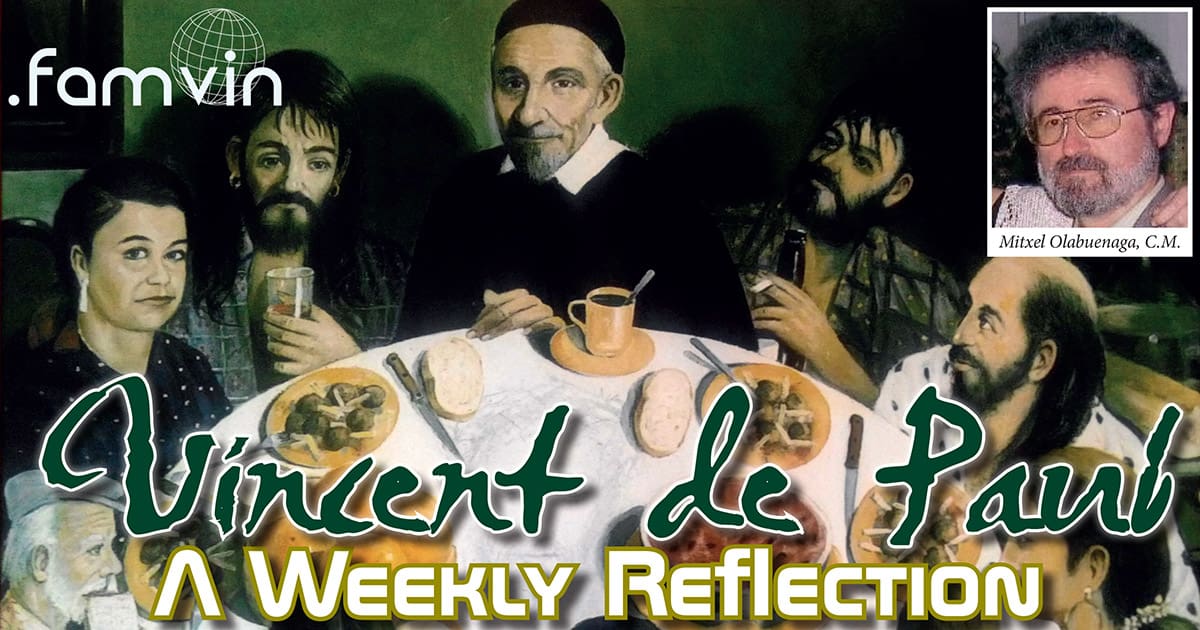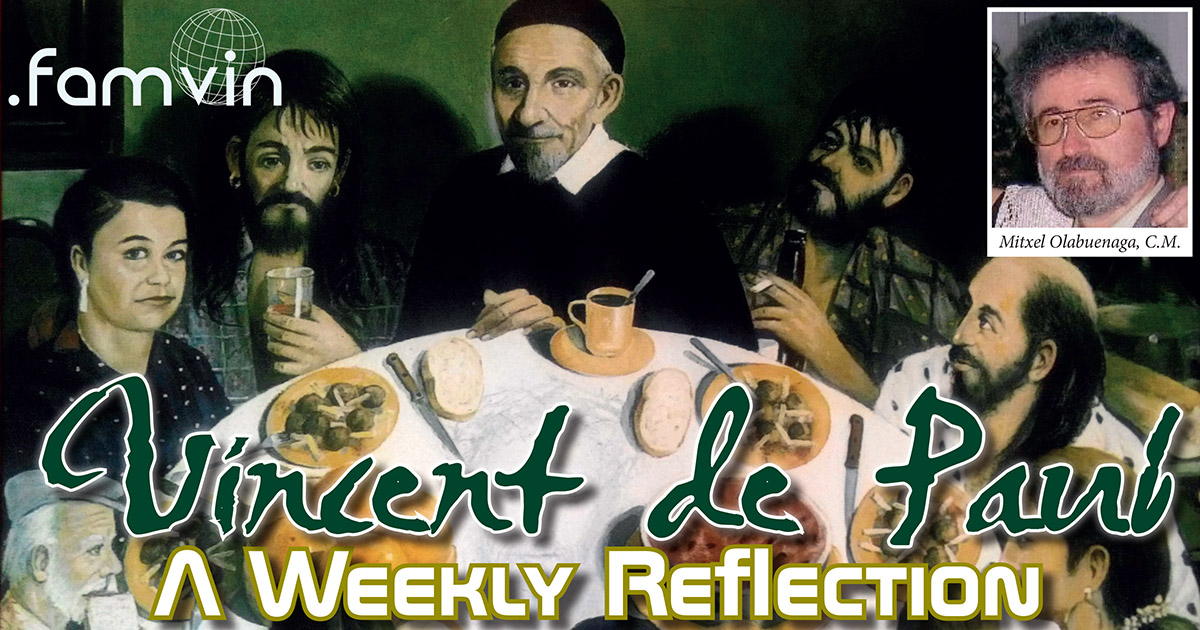From the Contemplation of God to the Love of God • A Weekly Reflection with Vincent
“To love God perfectly, to be swallowed up in the contemplation of His Divine Essence, His beauty, His goodness, His wisdom, and His other perfections. That’s the occupation of the saints with respect to Our Lord, who remembers the love He had to save them” (CCD:X:conference 93). “Now, if we often imagine having God before our eyes, who is beauty and perfection personified, there’s no doubt that the longer we look at Him, the more we’ll love Him” (CCD:IX:conference 41).
Vincent de Paul
Reflection:
- Saint Vincent’s references to the saints are abundant. Also, his devotion to them. Ultimately, they are the examples that he uses to make visible the fulfillment of the first commandment. Why the saints? The synthesis he makes of the reasoning is profound and simple: because his occupation was nothing other than to love God perfectly, which is nothing more than to admire his beauty, goodness, wisdom and other perfections. What better models for the believer?
- This “occupation” or “work” is not born of the human impulse or interest, but its origin is in the love that God himself has to his creatures. “As God loved man…”. A journey, we would say, back and forth with a halt (the poor) and a strategy (contemplation). Essential stop (the poor) for Saint Vincent, obligatory rest in the permanent path of perfection. Strategy (contemplation) as a fuel in the midst of the weariness of everyday life. Action and contemplation; affective and effective love.
- And like all roads, it requires work, not to sit under the fig tree to contemplate the birth, development, maturity, fall and corruption of each of the figs. Permanent work (work of quality we would say today) that encompasses not only the what, but the how and the why. The first chapter of the Constitutions of the CM is an example of the clairvoyance of a man of the seventeenth century who, in this sense, is discovered in our days by the gurus of quality: what (they try with all their strength to put on the spirit of the same Christ, to acquire the perfection corresponding to his vocation); How (they devote themselves to evangelizing the poor, especially those who are most abandoned, and help clerics and laity in their formation and lead them to a fuller participation in the evangelization of the poor); With whom (from the Community).
Questions for dialogue:
- How are our contemplative moments?
- What are the places we use for contemplation?
- Do we work the path of contemplation as well as action?
- Are we concerned about the quality of our work?
Mitxel Olabuenaga, C.M.
![]() Mitxel.OlabuenagaOrnes
Mitxel.OlabuenagaOrnes
Tags:








0 Comments